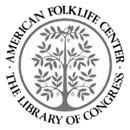| |
|||
|
home >> online collections >>
event archive >> archive of past symposia >> rediscover northern ireland 2007 >> flyer for gary hastings and brian mullen 2007The American Folklife Center at the Library of Congress presentsFree Noontime Concert
|

|
In Northern Ireland today it is a burning political issue that there should be more that unites than divides us. This noontime talk and recital will explore this theme. It is presented by two Irish musicians who have been friends since University days. One is a Protestant from Belfast, the other a Catholic from Derry.
Gary Hastings will discuss the ‘Lambeg’ Drum, a big bass drum, hung from the shoulders and supported on the chest. These drums are now used exclusively by the protestant fraternal organization known as the Orangemen, but were also used by their Catholic counterparts, the Ancient Order of Hibernians. Their chief musical characteristic is their sheer volume; the sound can intimidate and sometimes the drums are used to do so. This drum probably developed from those used in fife and drum bands. The crucial factor that Gary Hastings will discuss is that the tunes used by the fifers are subtly altered Irish dance tunes, the same tunes that many of the fifers might have played in more standard form to accompany dancers, since many of them also played fiddles or tin whistles. Himself a fine flute player, Gary will illustrate the contrasting forms, but essential musical identity of the tunes used within these apparently opposed traditions.
Words are more potentially divisive than music because words have denotative meaning while tunes merely carry associations. Songs can be specifically intended to divide. Orange songs are relatively few in number (perhaps only a few hundred), and have few themes. Many celebrate disputed marches, while others remember the Battle of the Boyne in 1690, express fear that massacres such as those of 1641 may recur, illustrate Orange ritual, ridicule Roman Catholic belief and religious practice and praise Orange heroes. Although many of the tunes and verse forms are of English and Scottish origin, many have identifiably Irish traditional verse and song forms. They share tunes, too. In his part of the talk, Brian Mullen will trace and illustrate some of these connections. As both singer and Irish speaker he is particularly well equipped to make them apparent.
The unities exposed in this talk run counter to one of the dearest tenets of certain politicians in Northern Ireland. The theory that the cultural practices of Catholics and Protestants are distinct in origin and form, the ‘two cultures’ theory, is frequently cited and usually uncritically accepted. That the music and song that provides the most obviously identifiable feature of ‘loyalist’ culture can be clearly allied to the mainstream of Irish musical culture disturbs the notion of separate and distinct cultures.
Reverend Canon Gary Hastings was born in Belfast and is now the Church of Ireland Rector of Westport, Co. Mayo. An excellent flute player, he was recently featured on the CD “Slan le Loch Eirne.” He recently wrote a fascinating book, With Fife and Drum - Music, Memories and Customs of an Irish Tradition which explores the musical tradition of the Lambeg drum. The publication also includes a tunebook of 70 fife tunes and a 17-track CD containing recordings of performances and of conversations with practitioners. Brian Mullen is a native of Derry city and has been singing traditional songs for more than 30 years. Since the 1960s he has met and learned from some of the great singers of Ulster, such as Eddie Butcher, Joe Holmes, Geordie Hanna, and Nellie Ní Dhomhnaill. Brian has worked for many years with the BBC, where he was Northern Ireland’s first full-time Irish language radio producer. He helped to set up Radio Ulster’s Irish Language Unit in 1987 and currently presents “Caschlár” which features an eclectic selection of traditional music.
Rediscover Northern Ireland: In 2007, Washington D.C., the heart of the United States of America, will have the opportunity to meet face to face with people from Northern Ireland - people who contribute meaningfully and creatively to the society which has emerged from a troubled past and is now looking outward and forward to the future. As a complement to the sights and sounds America will experience at the Smithsonian Folklife Festival, Northern Ireland has planned a program of events for Washington D.C., starting in March 2007, which will reflect other aspects of what happens here on a daily basis. This program is collectively entitled Rediscover Northern Ireland.
 The American Folklife Center was created by Congress in 1976 and placed at the Library of Congress to “preserve and present American Folklife” through programs of research, documentation, archival preservation, reference service, live performance, exhibition, public programs, and training.The Center includes the American Folklife Center Archive of folk culture, which was establishedin 1928 and is now one of the largest collections of ethnographic material from the United States and around the world. Please Visit our web site at http://www.loc.gov/folklife/.
The American Folklife Center was created by Congress in 1976 and placed at the Library of Congress to “preserve and present American Folklife” through programs of research, documentation, archival preservation, reference service, live performance, exhibition, public programs, and training.The Center includes the American Folklife Center Archive of folk culture, which was establishedin 1928 and is now one of the largest collections of ethnographic material from the United States and around the world. Please Visit our web site at http://www.loc.gov/folklife/.
| |||
